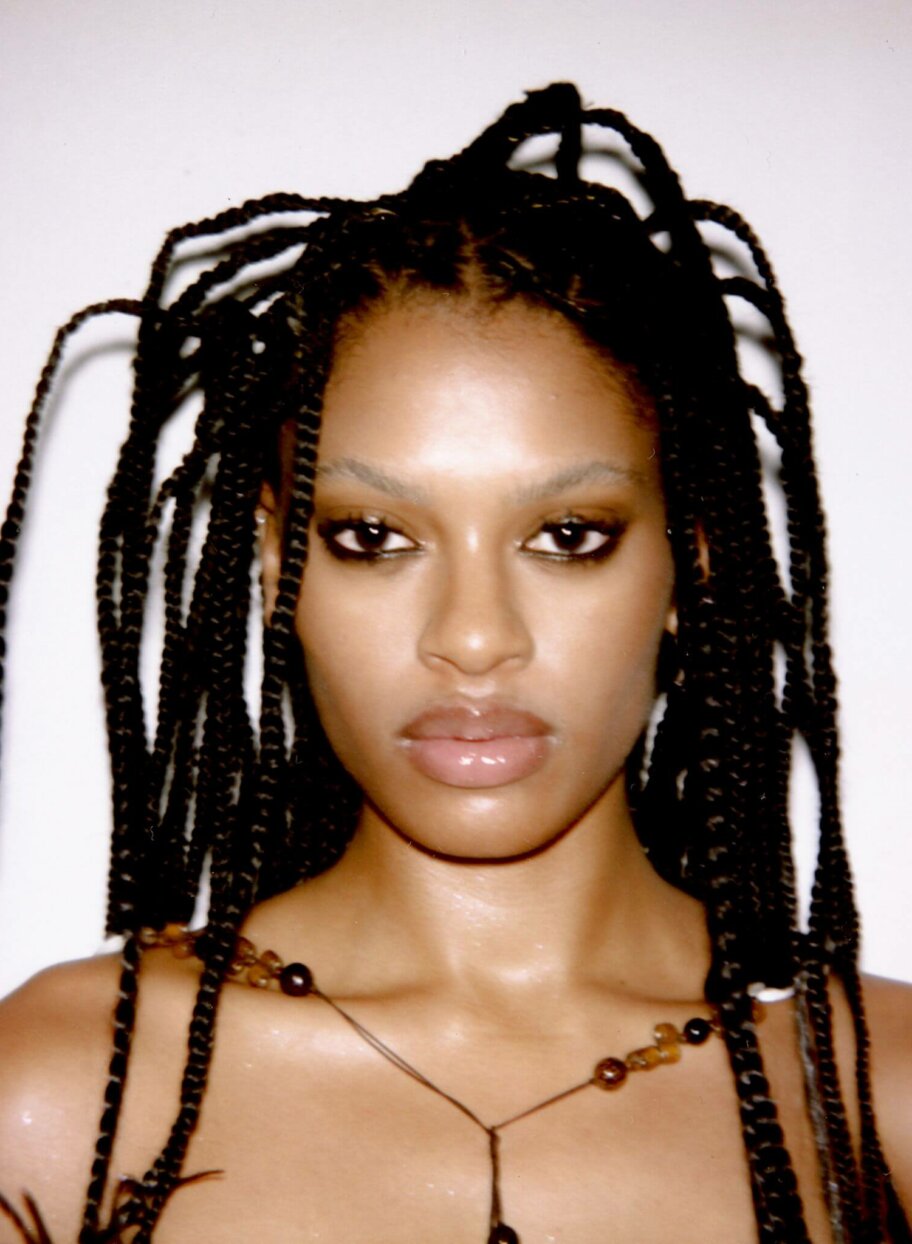
PHOTOGRAPHER ASHLEY OLAH @ashleydarianolah
INTERVIEW BECK DIAZ @hypebeck
STYLIST ALEXANDRA ASSIL @alexassil
HAIR ANDRE GUNN / ART DEPARTMENT @888dre
MAKEUP KASHA LASSIEN @kashalassien
SPECIAL THANKS TO PAUMÉ @paumelosangeles
Almost everyone goes through an identity crisis growing up, however, growing up in an environment that doesn’t reflect you and has little representation can be extremely hard. As a brown hispanic girl who went to a predominantly rich, white high school, I know I struggled immensely in my younger years. Is there anything you would say to your younger self if you had the chance, or is there any advice you can give to kids going through a similar situation?
It’s rough growing up in an environment where you’re the odd one out, the only person of your culture, background, or identity, in a homogenous space. I feel you, cuz I also went to a predominantly rich and white prep school. I think if I could go back and talk to my younger self I’d go back to when I transferred to that school in 7th grade. I’d tell her what’s up, what racism is, how it works, what it looks like. I’d tell her to be confident in who she was, and value the friends that love her whether or not they are considered “popular”. If I could say all that to my 12 year old self it would’ve saved me a lot of bullshit and trauma. I learned fast, but I didn’t have anyone to teach me those things. No older sibling, no cousins, no other black kids, and my parents probably didn’t consider racism as a possibility or as something I’d be confronted with so early. However, I’m not sure any kids that age would take my advice. I tried telling my little sister the same thing at that age and she admitted that she had to learn those lessons on her own (she’s 14 now). But regardless, my advice for kids going through something similar now would be to use the internet to your advantage. Especially if you’re isolated in a rural place. Give yourself context for what’s happening to you. Context is powerful, and once you realize how big the world is and how much potential you have, those kids will seem small. Their hate will feel ridiculous and desperate. Own the wealth that your diversity brings to the table, the wealth in your culture. All those things are what sustain you through your life, and give you community wherever you go.
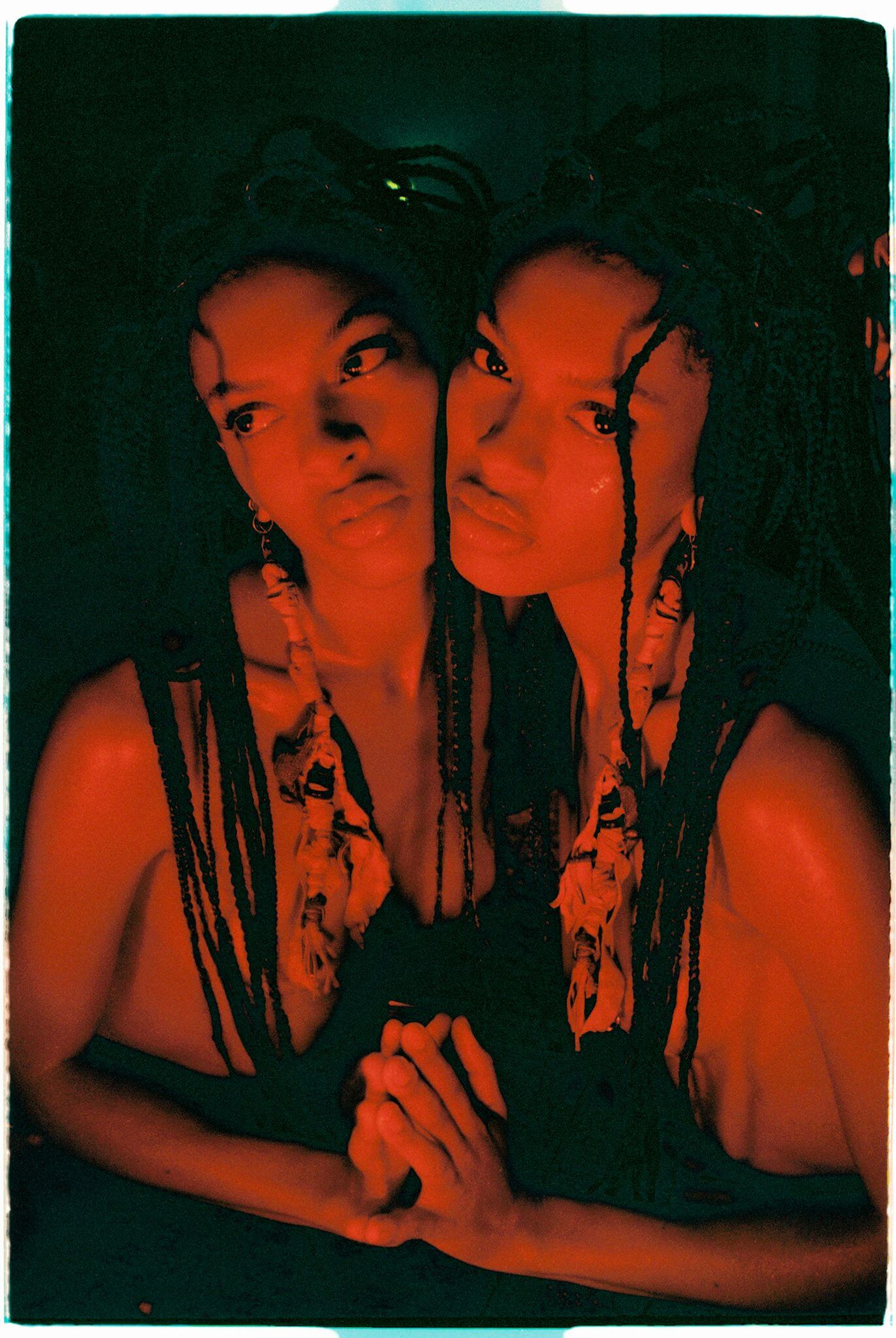
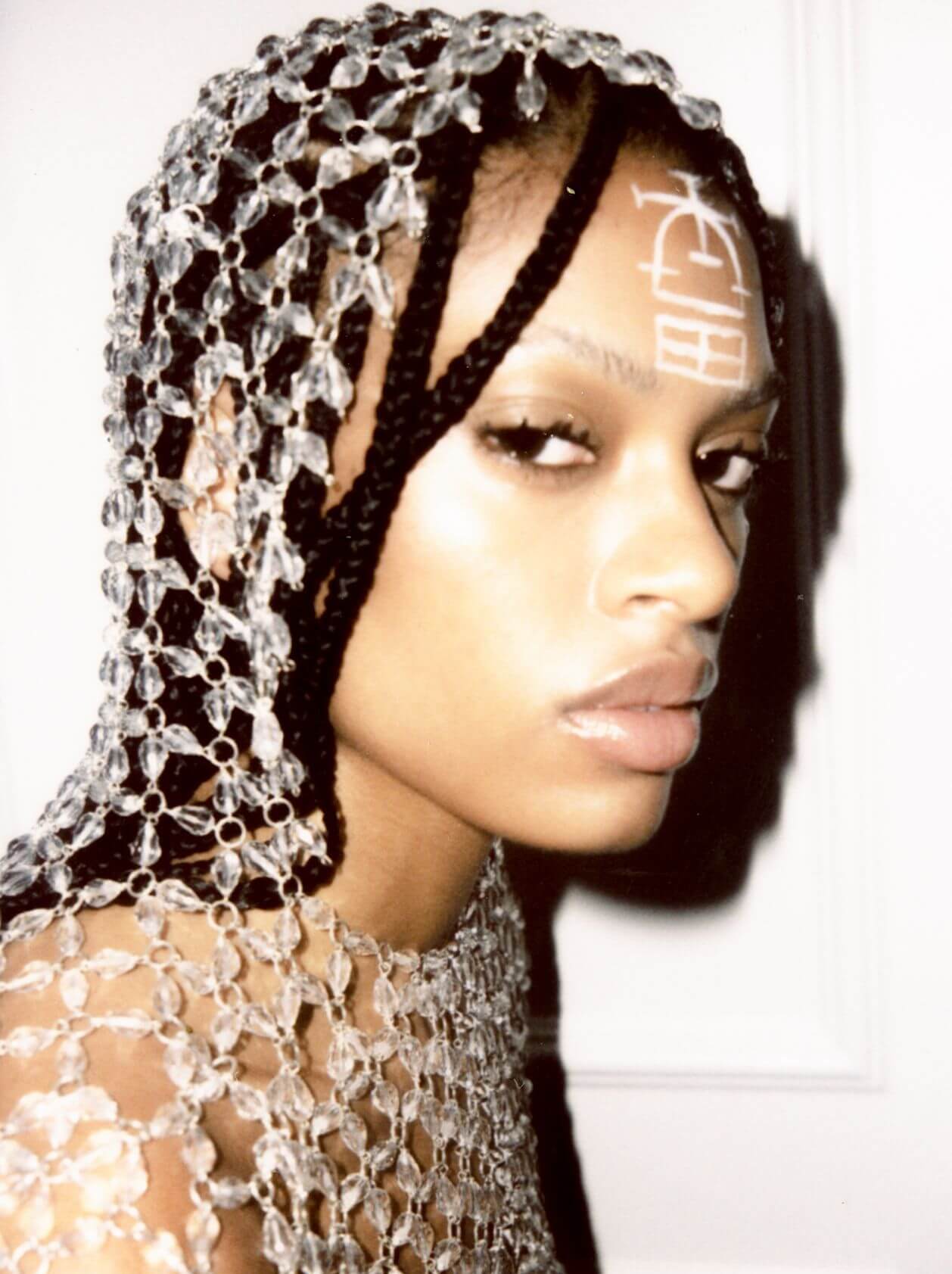
You’ve mentioned before that beauty is a kind of meditation for you. How has skincare and beauty helped you cope with all the outside bullshit?
I think the main thing that is meditative about skincare is that it offers me a sense of ritual and routine. Two moments a day where I can decompress and honor my body. Especially this year, with a complete upheaval of all my plans and weeks without anywhere to go, having that routine of washing my face in the morning, and then again before I go to bed, gave me a semblance of structure that was really important for maintaining my mental health. Just because it’s a small doable thing to hold onto even when I was at my lowest this year.
I love that most of your skincare regimen is affordable. Even though you mix in some higher ticketed items, overall everything seems to be pretty accessible. What draws you to the products you decide to incorporate into your regimen?
I’ve tried a lot of products over the years but when I started making my own money I did get drawn into the luxury aspect of skincare since it’s lux but it’s not as expensive as a pair of designer shoes. I felt bougie without being able to afford the full experience. Now however, I’ve learned through research what your skin actually needs and found that those super expensive products are oftentimes really damaging to your skin. I don’t really trust all the additives, and thankfully shea butter and oils are rather cheap. Now my mentality is less-is-more with my skin. Keep it as clean as possible.
You seem to have a deep understanding of skincare and beauty. What led you to dig deeper into the science and ingredients of your skincare products?
Between the age of 16 and 22 I could put basically anything on my skin because I had good healthy skin and wasn’t prone to breakouts. So I was going ham on all the heavy fragrances and chemicals, no idea or clue what I was doing. Just following the ticket price. But then around 22/23 I started breaking out like crazy, my skin was super sensitive and inflamed. So I was kind of forced to fully look into what I was putting on my skin and learned all about moisture barrier maintenance and proper use of exfoliating actives and what oils were good for oily vs. dry skin and why. Researching and understanding those things allowed me to be a lot smarter about my skincare, waste less and spend less, and the changes cleared up my skin. I realized I was wreaking havoc on the delicate ecosystem our skin creates for itself. Both internally with what I ate and topically. It was a long process of rehabilitation.
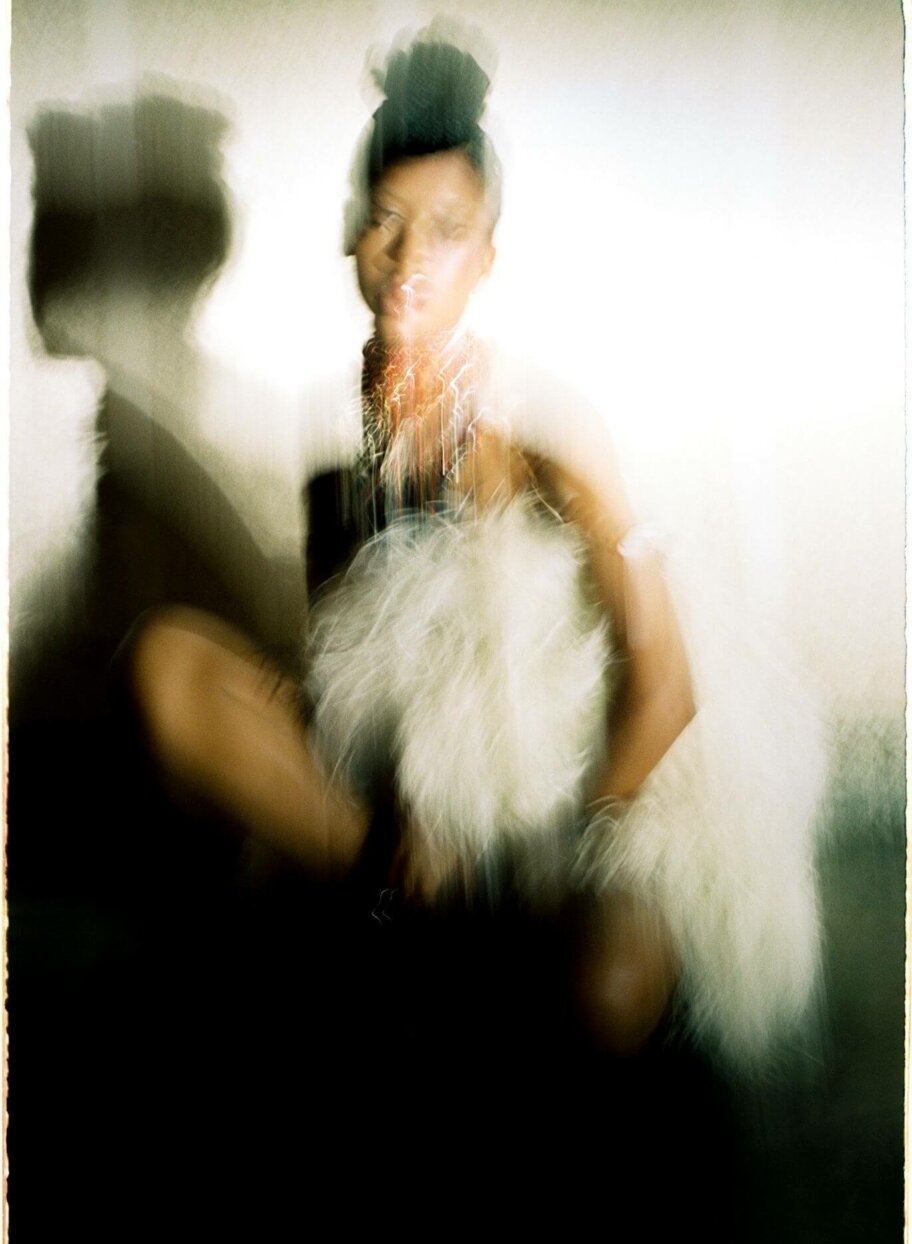
Having been raised in an artistic household, how much of your own artistic identity do you attribute to your upbringing?
Being raised by artists is a bit of a double edged sword. On one hand my parents were super inspiring. Watching their passion and drive for excellence gave me an example of what the pursuit of excellence really takes. It’s grueling long hours and little pay, and it’s not really all that romantic until the end. On the other hand, they were super critical of my art. Nothing I ever did was quite good enough. They encouraged me as far as giving me critique and telling me to try again but it bred a harsh discerning eye in myself. My expectations for myself and those I work with are exceedingly high. I think unlike kids who come from families with few or no artists, I had a painfully visceral look at what being an artist took and how risky it was. To this day I feel this immense pressure to earn that title of artist, properly earn it. My parents taught me that you don’t just get to claim that without putting the work in. There is no blueprint on what that work looks like, but there is a strong canon on what that feels like.
Speaking about your artistic upbringing, with your parents both being fashion designers, was there ever a time where you thought you might go into that industry as opposed to the music lane that you’ve chosen now?
Haha Yes! I wanted to be a fashion designer so badly when I was little. I remember going up to my dad after one of his shows and saying I wanted to do what he did and he told me “no, you’re going to be a doctor or a lawyer, being an artist is very hard”. I watched him work and he was so naturally talented and masterful at his craft that I suppose my reverence for that steered me away from ever really attempting to catch up, and he wasn’t really keen to teach while he was fixated on me having some sort of sensible job. By the time I was applying for college I felt that the ship had sailed on me pursuing that passion. It’s still something I will delve into one day, not as prolifically as him, but I’d love to work with him and build something iconic together. Hopefully my career will support that dream.
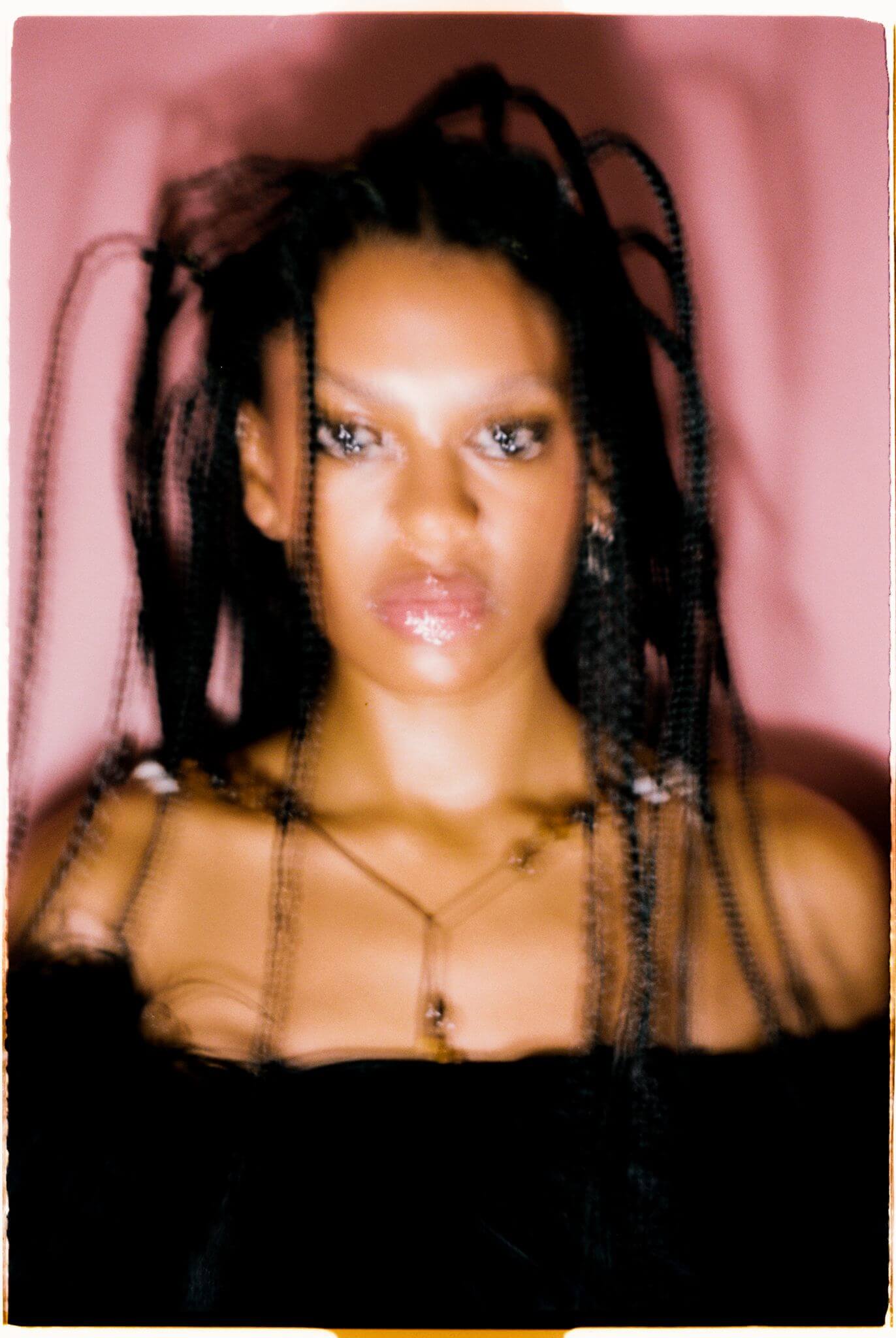
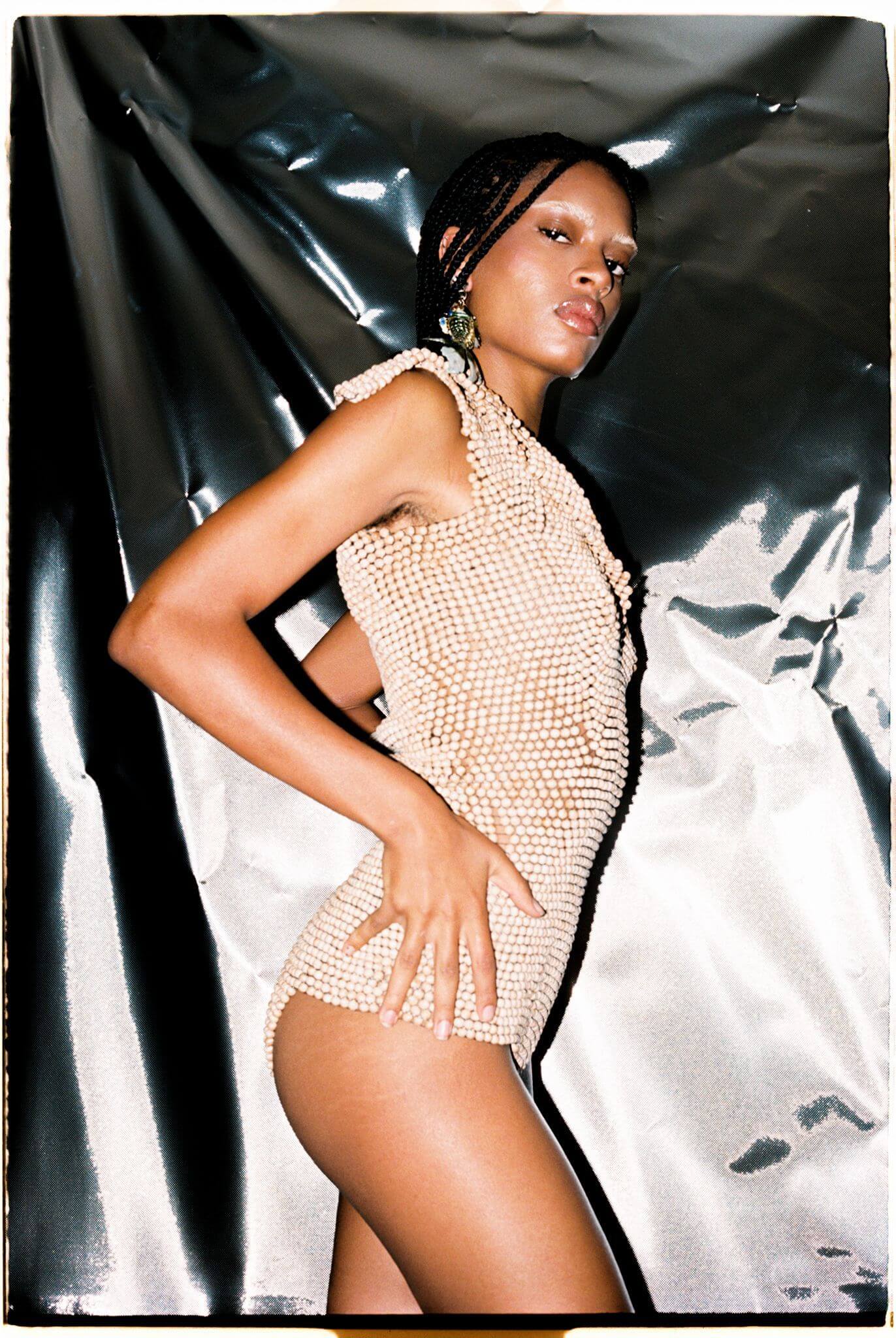
Your project ‘Sacred Bull’ is so ethereal and unique. You once said that you’re not interested in doing ‘hip and trendy’ music, but would you ever consider working with a pop artist? If so, who?
Thank you! I’m not interested in trends, no… but I did get wrapped up in chasing the elusive concept of “commerciality” and it was agonizing for me. I always felt half-there and shell-like, even in some aspects of sacred bull I hear that. For that reason, I don’t have any interest in working with a pop artist because most pop today just borrows from independent artists and regurgitates it on a larger budget and bigger scale. I would like to protect my artistry from that. BUT! I would love to be a pop artist for a project or two. I think it would be fun. I have a huge respect for good pop, and there are some modern masters out there for sure. Pop is also super fun to write. It can be so limitless and opulent, and I love those qualities of fantasy. I think music always deserves a bit of theatre. I already know what I’d call my pop album… I’d call it “Pop Slut”, it’d be bangers and ballads only.
If you could collaborate with anyone in the music industry, who would it be?
Bjork. I wanna work with her so badly, and Meshell Ndegocello. Both are masters in my book. I think I could learn a lot.
Has the current climate thrown a wrench in your music? (collaborating, playing shows, etc)
A little bit, but the main thing this pandemic has done is highlight the gross inequities in the music industry as far as artists rights and ownership over their music. The industry was clinging to touring and merch to sustain artist revenue. It was one of the few music related places where the artist could actually make money because streams and sales are either completely eaten up in splits, or there’s simply not any significant revenue coming from that sector. So, without festivals and touring a lot of artists have no practical way to generate income. For me however, the shutdown allowed me to take a step back and stop chasing commerciality. It allowed me to stop collaborating and find out who I was on my own. I really found my artistry this year, my own distinctive voice and it’s because I was forced to confront myself. I just remember thinking, if I were to die tomorrow would I be happy with what I’ve made thus far? And the answer was no. So I had to do something about that asap, there was a horrid sense of urgency.
What’s next for you?
Well, I just finished a project called “Revival”. I’m calling the genre ‘Power folk’ since it is folk inspired but lends itself a bit to soul records from the 70s. I produced the project myself and wrote all the songs, songs I had been writing for years but had done nothing with because they were like my lullabies and I wasn’t ready to share something so pure and sacred to me. I brought together a beautiful band and crew and we made a beautiful EP born of a lot of luck and divine timing…I genuinely cannot wait for everyone to hear it. I think it’s going to heal a lot of people like it healed me. I think it’s the start of the task I was brought here to do.
| Cookie | Duration | Description |
|---|---|---|
| cookielawinfo-checkbox-analytics | 11 months | This cookie is set by GDPR Cookie Consent plugin. The cookie is used to store the user consent for the cookies in the category "Analytics". |
| cookielawinfo-checkbox-functional | 11 months | The cookie is set by GDPR cookie consent to record the user consent for the cookies in the category "Functional". |
| cookielawinfo-checkbox-necessary | 11 months | This cookie is set by GDPR Cookie Consent plugin. The cookies is used to store the user consent for the cookies in the category "Necessary". |
| cookielawinfo-checkbox-others | 11 months | This cookie is set by GDPR Cookie Consent plugin. The cookie is used to store the user consent for the cookies in the category "Other. |
| cookielawinfo-checkbox-performance | 11 months | This cookie is set by GDPR Cookie Consent plugin. The cookie is used to store the user consent for the cookies in the category "Performance". |
| viewed_cookie_policy | 11 months | The cookie is set by the GDPR Cookie Consent plugin and is used to store whether or not user has consented to the use of cookies. It does not store any personal data. |